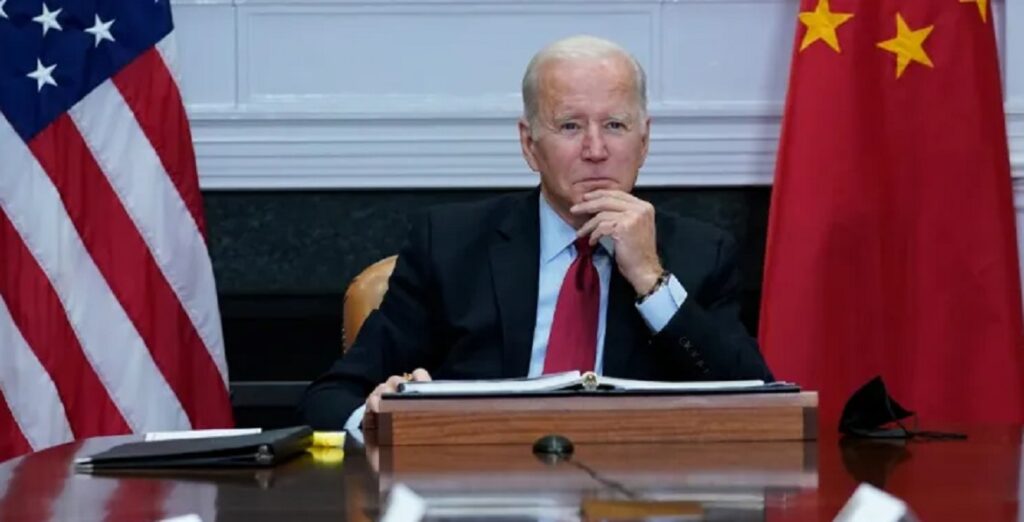The US has no Plan B, says Professor Radhika Desai, Director of the Geopolitical Economy Research Group, University of Manitoba, on the YouTube Thinkers Forum on 25 January 2024.

She goes over paradigm shifts in 2023 on America’s hegemony, including Ukraine and Gaza; the long-term impact on US’s own economy; Russia’s resilience against US-led pushback; questionable durability of the “casino-like” open-market dollar-system; the future of US-China relations; China’s more restrained and globally-inclusive diplomatic stance; and the impactful elections in the United States and the United Kingdom.
I should add that America’s so-called Plan A against China has only four blunt tools: (a) US military dominance, (b) US technological lead, (c) the weaponized dollar, and (d) America’s so-called global alliance-network. These are proving less and less effective against China.
As for (a), China has vastly expanded its military, well capable of defending its core interests. This includes a mobile, hypersonic nuclear-capable Inter-Continental Ballistic Missile (ICBM) System with multiple, separately-navigable warheads, a blue-water navy now with more warships than the United States, state-of-the-art fifth-generation fighter planes and bombers, not to mention cyberwarfare and AI capabilities.
As for (b), nano-semiconductor-chips excepted for the time being, the Australian Strategic Policy Institute (ASPI) has found that China is leading in 37 out of 44 21st-century cutting-edge technologies. Albeit excluded from the US-led International Space Station project from the very start, which is near the end of its useful life, China has succeed in building and operating its own Tiangong Space Station from scratch. It is the only country able to send a successful robotic probe to the far side of the moon. Its lunar program is picking up speed, partnering with other nations including some advanced countries.
As for (c), indiscriminate long-arm dollar sanctions have pushed more countries in the Global South to transact bilateral trade with China using other currencies including the Renminbi. China’s digital sovereign currency (e-CNY) is gaining traction internationally. After all, China is by far the world’s largest trader and manufacturer. It remains the larger trading partner for 128 countries compared with America’s 57. Seven of the world’s top 11 container ports are in China, including Hong Kong. Even not “Made in China”, China is embedded in myriad products across the globe, including materials. minerals, components and logistics, decoupling or de-risking regardless.
As for (d), marginalized for decades under US hegemony, the Global South has become more able to defend their national sovereignty and strategic interests. Witness the massive Regional Comprehensive Economic Partnership (RCEP) comprising ASEAN countries and their main trading partners. This is the world’s largest free trade bloc representing a third of global GDP and a third of world population, where China remains a central trading hub. More developing countries have chosen to join the BRICS (Brazil, Russia, India, China and South Africa) Group as well as the Shanghai Cooperation Organization (SCO). Witness also the more independent tilt of the Middle East and even India. Most nations in the Global South don’t want to be forced to choose between America and China, which remains a key source for economic development, including trade and infrastructure.
All in all, as pointed out by Professor Desai, the days of American hegemony are numbered. The sooner America’s elites wake up from their pipe-dream of perpetuating American hegemony through brute coercion, the better would be the propsects for a more inclusive and peaceful world.
Author: Andrew KP Leung – International and Independent China Strategist. Chairman and CEO, Andrew Leung International Consultants and Investments Limited. He previously served as director general of social welfare and Hong Kong’s official representative for the United Kingdom, Eastern Europe, Russia, Norway, and Switzerland.
(The views expressed in this article belong only to the author and do not necessarily reflect the editorial policy or views of World Geostrategic Insights).







